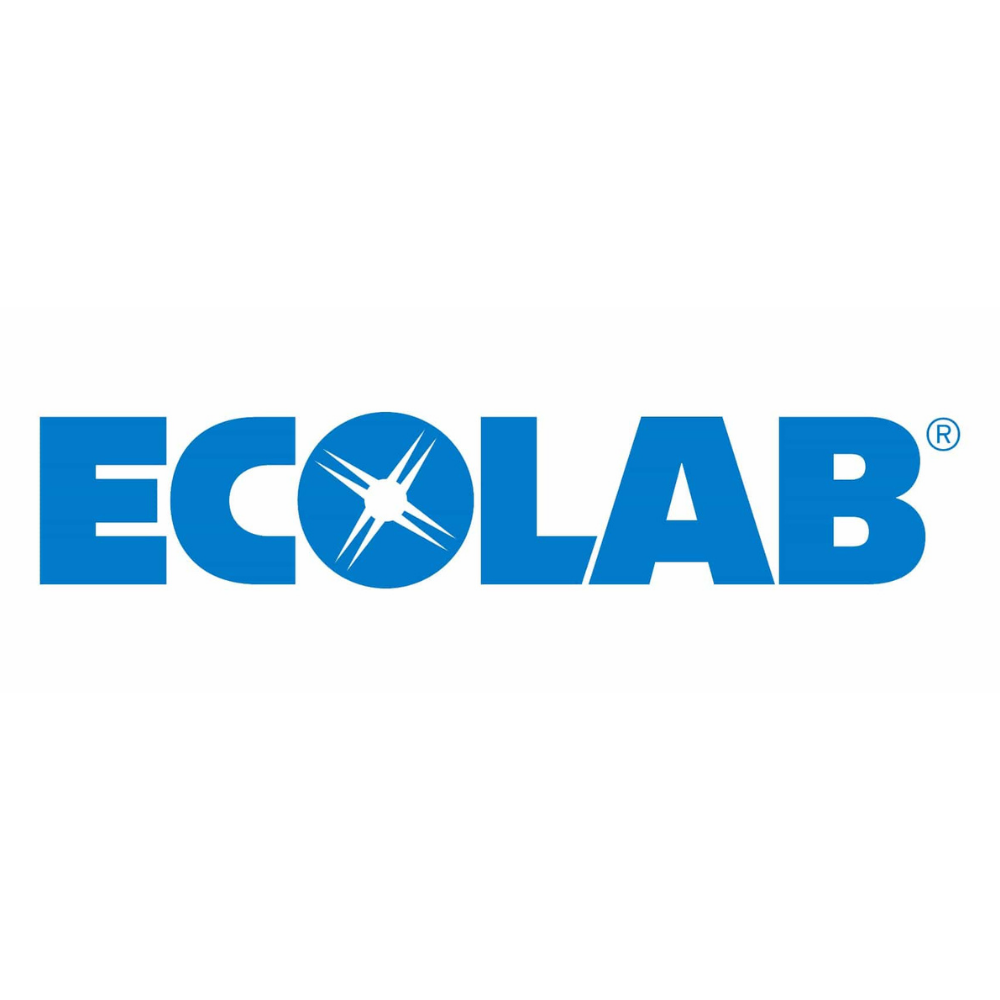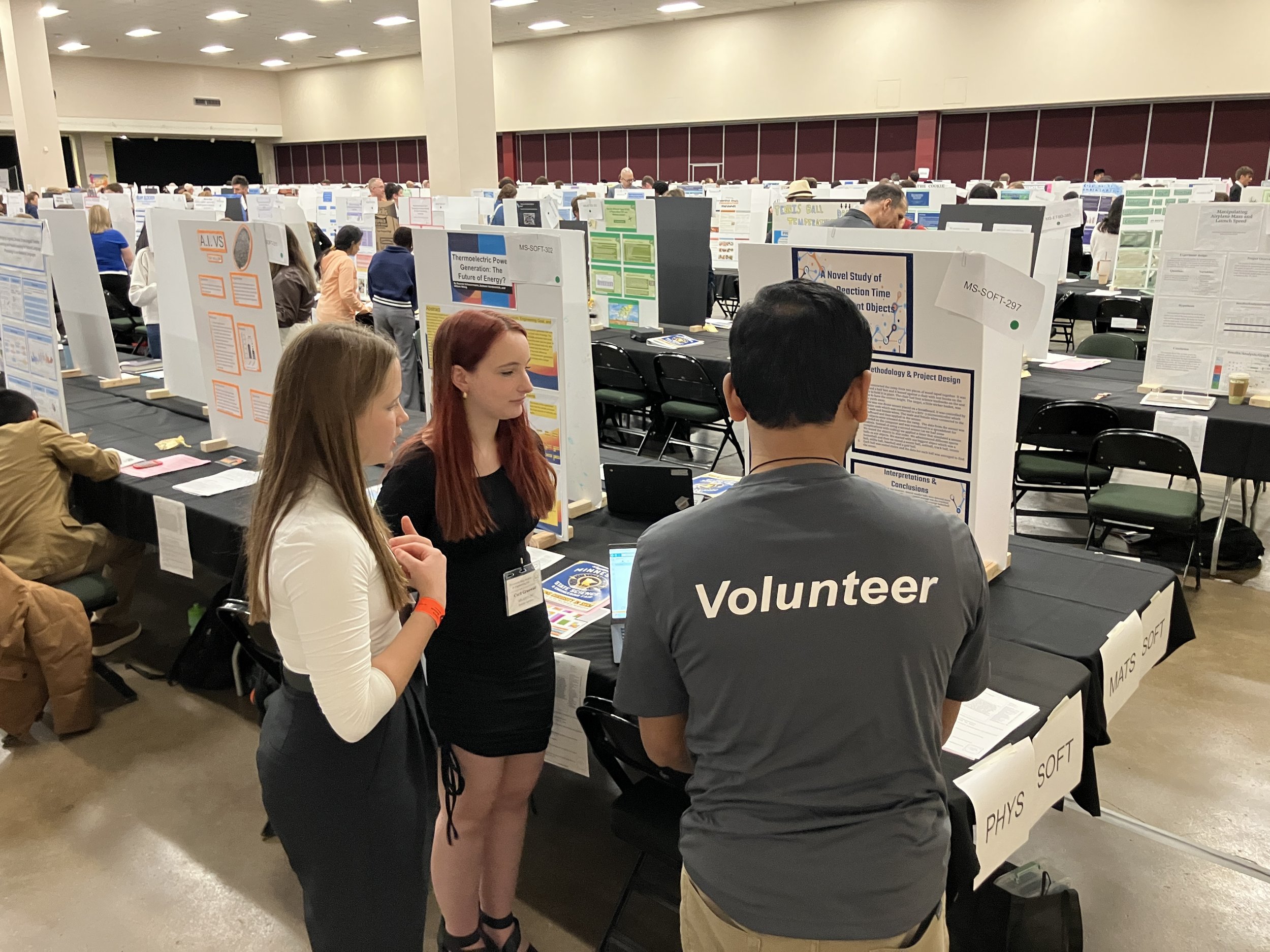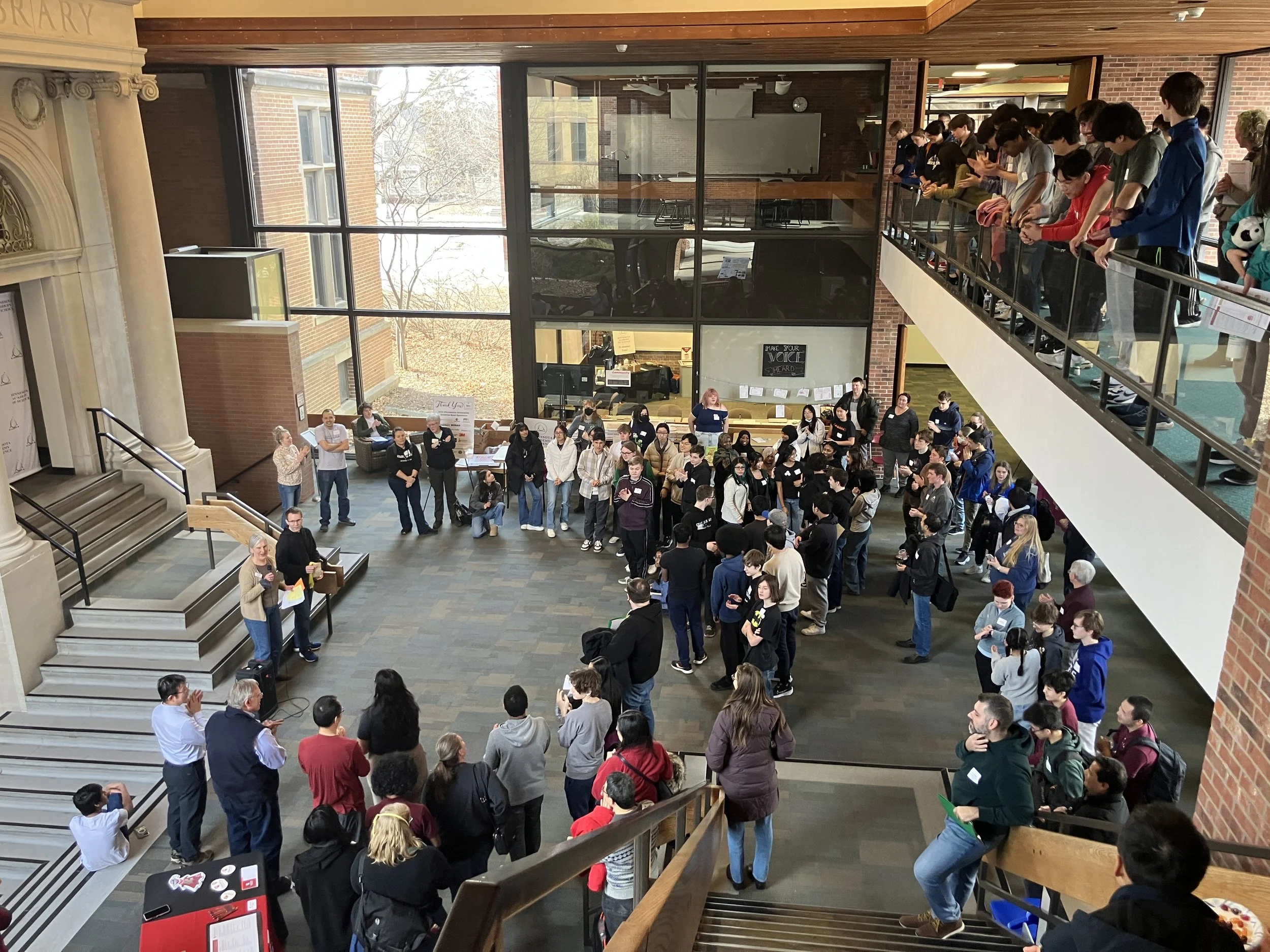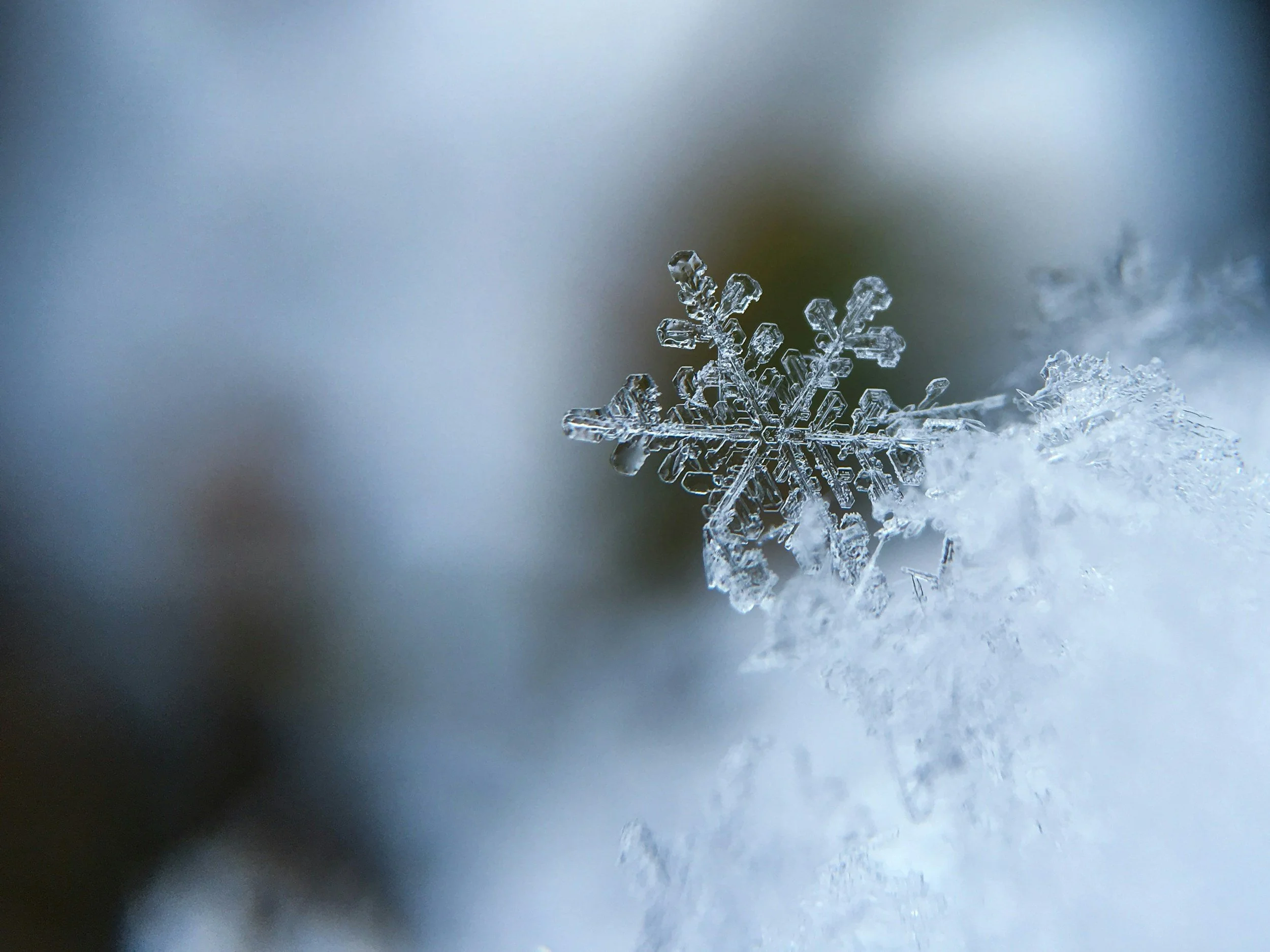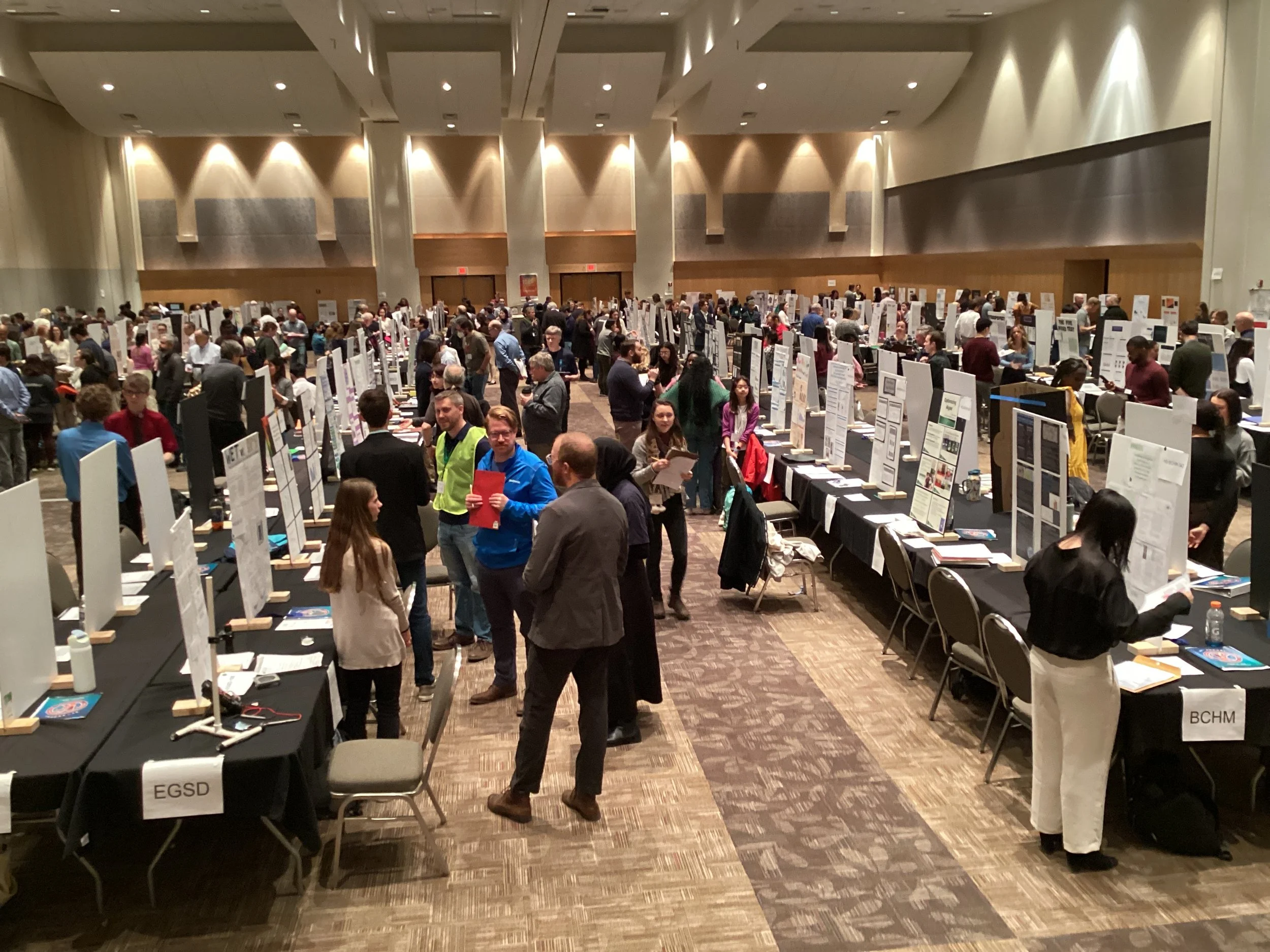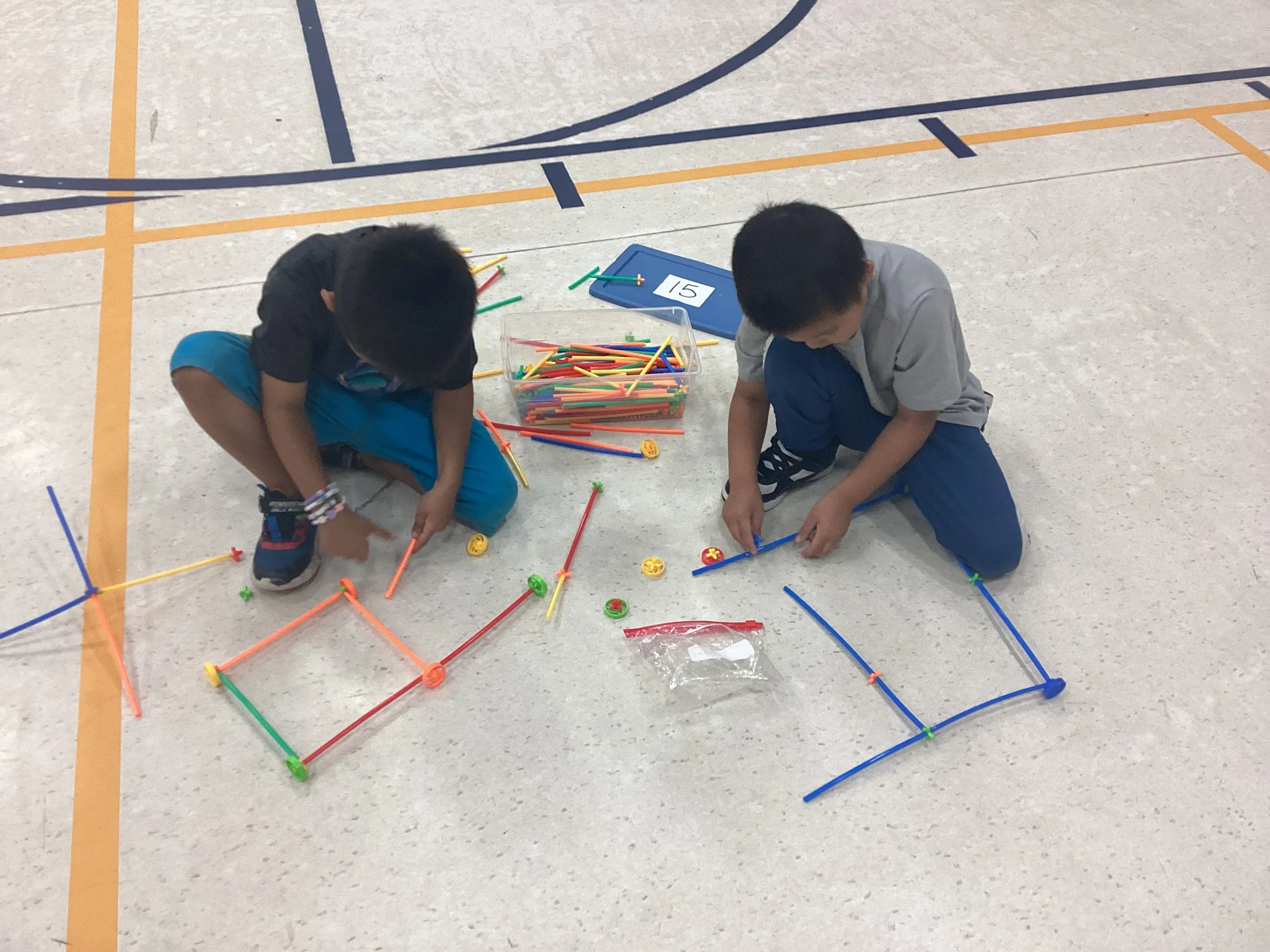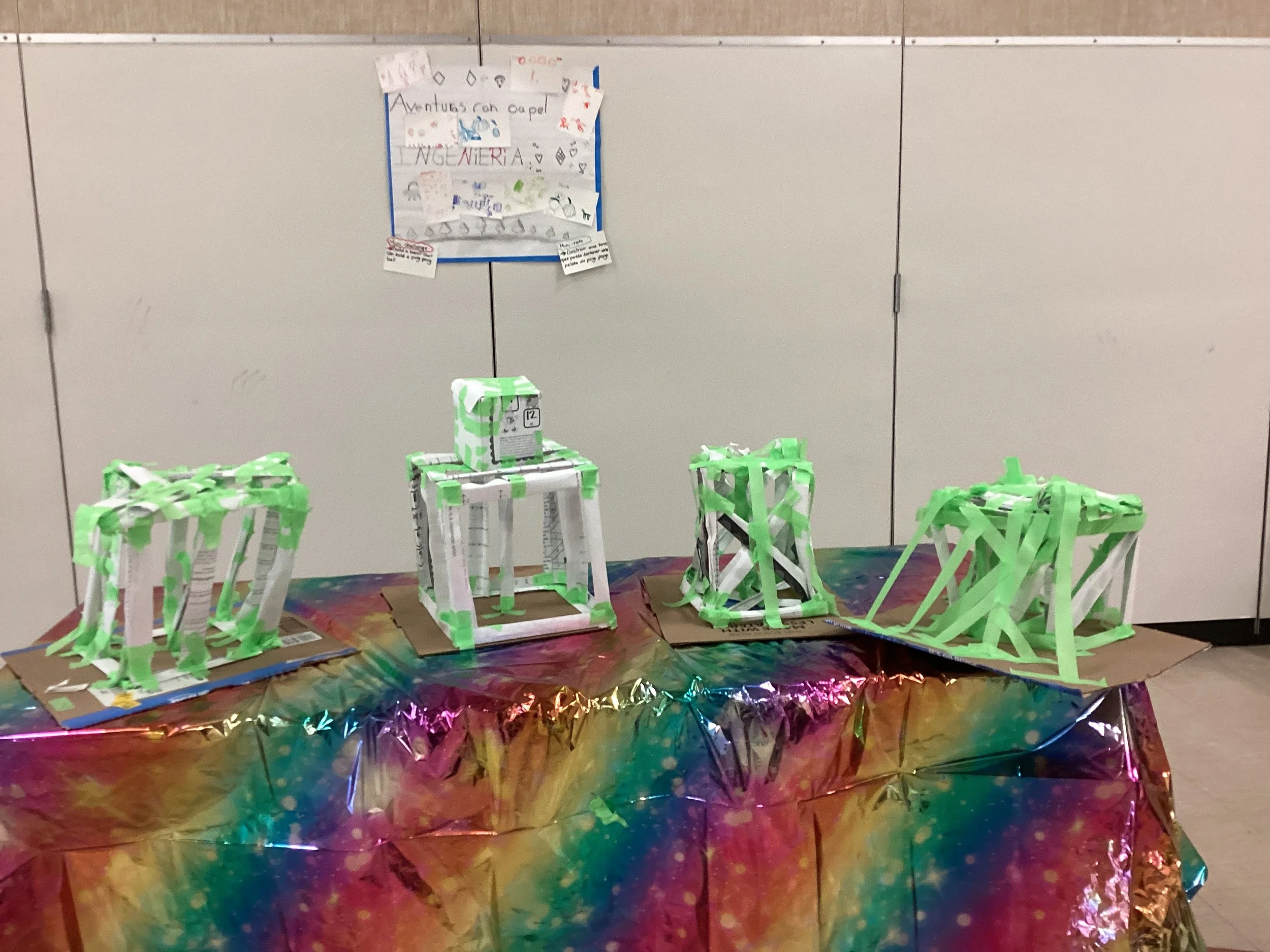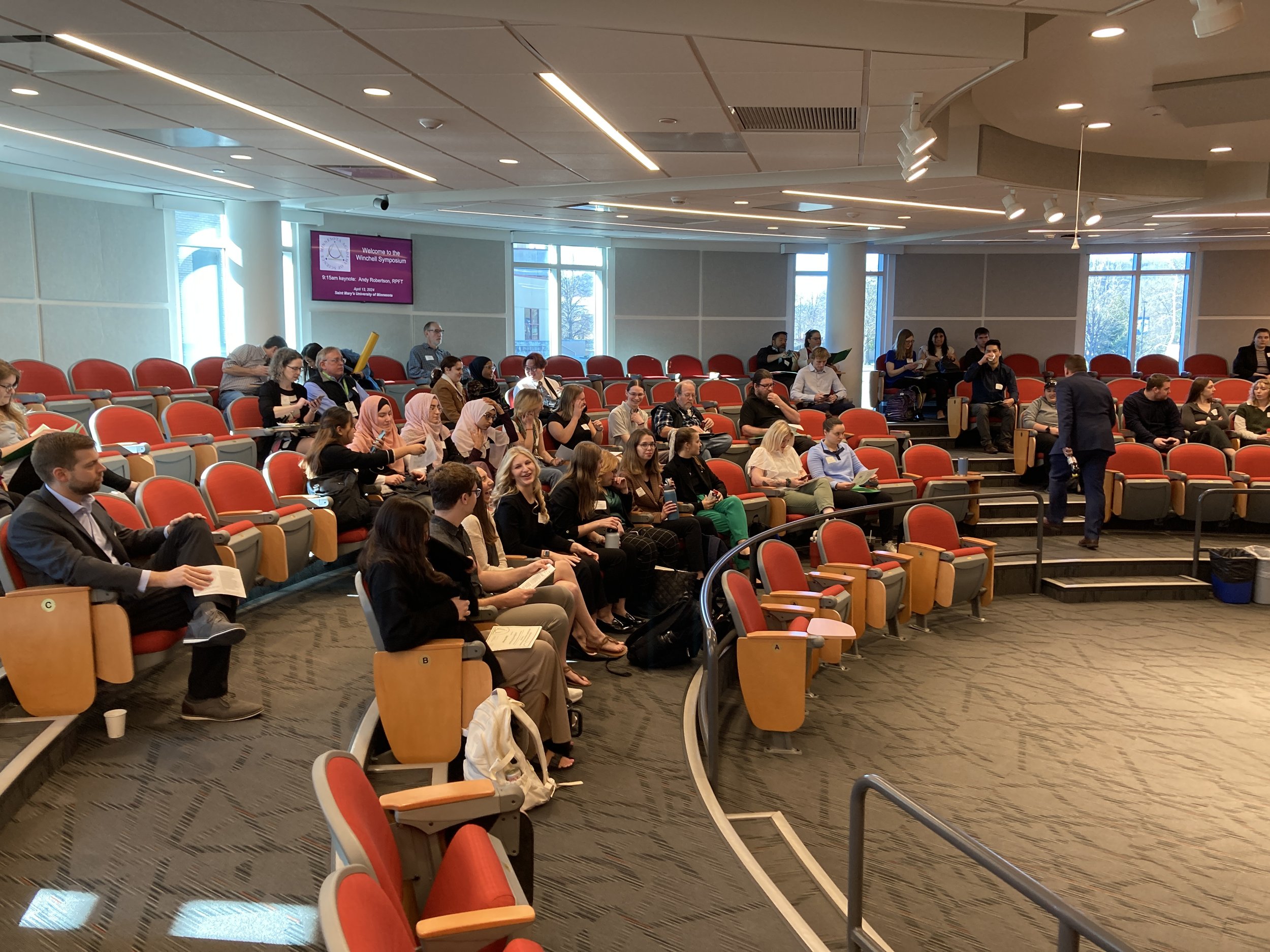Minnesota State Science and Engineering Fair Frequently Asked Questions
-
Science fair projects encourage students to develop a question that they have about the world around them and then design and carry out an investigation to answer their question.
Science fairs are meant to teach you how to think, work, and communicate like professional scientists do, by engaging hands-on with a topic that interests you and generating knowledge that can be shared with your community.
In a science fair, information about your project is displayed visually as a poster for judges, who are experts in their field. They will also ask you questions about your experiments and topic of study. Judges then score your project and presentation on a judging rubric, and the scores for all of the projects are compared. Awards are given based on these numeric scores.
Projects are first entered in a school or district fair. If your science teacher does not mention a science fair at your school, see who your regional fair director is and ask how they can help you. Projects that do well at the local fair may be advanced to one of Minnesota’s regional science fairs. The highest-ranked projects at regional level move on to our Minnesota State Science & Engineering Fair, where they have a chance at over $20,000 in prizes and an opportunity to advance to the International Science & Engineering Fair, with $8 million in prizes and scholarships! -
There are many ways to conduct fun, engaging, and meaningful scientific research regardless of location. Here are some ideas for science fair experimentation that can be done from home.
Explore nature
Science fair projects in the environmental, plant, and animal science categories can range from backyard garden studies to agriculture testing to wilderness observations.
Study people
Get to know the people around you in a new way! For a project in the behavioral and social sciences category you can virtually collect data, for example through online surveys or phone/video interviews.
Go computational
Computer science is a huge, dynamic field of study with countless applications in other STEM fields and in society as a whole, and many computer science projects need little more than access to a computer. Reputable public datasets can be a good starting point for data analysis projects. (Some well-known examples include the National Oceanic & Atmospheric Administration Data Access and Google Public Data.)
Interested in chemistry or biology? Computational chemistry, computational biology, & bioinformatics are rapidly developing fields of research that may be a good fit for you!
Learn what supplies are safe to use at home
Some biological tissues, including plant tissues, fresh/frozen meats, blood finger sticks, and hair, are not considered by the International Science & Engineering Fair safety standards as potentially hazardous and can be worked with outside of a school or laboratory. With adult supervision and knowledge of safe usage, some chemicals and tools may also be okay to work with. See the ISEF Rules for information about safety requirements in science projects.
Ask trusted adults for help
Adult relatives or guardians are welcome to serve as adult sponsors for science fair projects. Try reaching out via email to STEM professionals and academics too!Submit your project to a Regional Science Fair
For information about entering your Regional Science Fair, please contact your Regional Director - contact information is available here. -
Participants must be in grades 6-12 to compete. Projects are separated into two competition groups- middle school students (grades 6-8) and high school students (grades 9-12).
-
To be eligible to participate in the Minnesota State Science and Engineering Fair, students must first participate in an affiliated Regional Science Fair in Minnesota and be selected to advance.
Home-schooled students and students at schools that do not have science fairs are welcome to participate and should contact the Regional Science Fair closest to their home. For more information on the Science Fair process, please see our Getting Started With Science Fair page. -
Teachers play a crucial role in the State Science and Engineering Fair! See below for a few suggestions on how YOU can take part.
Mentor- Mentor a student or team on their chosen science project.
Organize-Organize a school or class science fair at your school.
Support- Assist students with entering into their Regional Science Fair. From Regional Fairs, students will have the chance to be promoted to Minnesota State Science Fair and ISEF.
Download Science Buddies’ Teacher's Guide to Science Projects
-
All projects must compete under one of ISEF’s categories. When choosing which category a project belongs in, students should consider which judges are most qualified to evaluate their project. For more advice about choosing a category (and to view the Intel sub-categories), please visit the ISEF website.
-
Teams must consist of no more than three individuals. A project cannot be switched from a team project to an individual project in the same year, nor can a project with three team members be reduced to a project with only two partners.
In order to participate in SSEF, all members of a team must be registered even if all members are not able to attend.
All team members must be in the same division (i.e. Junior or Senior) to be eligible. Teams that contain a combination of both middle school and high school students are not eligible to participate in SSEF. -
In 2023, MAS changed Science Fair presentation guidelines to a quad chart model. Goals of this change were to simplify presentation requirements and to facilitate an accessible in-person event by eliminating the time-consuming display-and-safety process.
Beginning in 2023, MAS required participants to submit videos, abstracts, quad charts, and up to six images online prior to the event for judges to review. In addition, we asked students to print their quad charts on four standard sheets of paper and affix them to a 24” x 36” foam board for display in the project hall. Students also were required to bring copies of their quad charts and abstracts for judges. A folder or binder of additional documents and data to refer to during their conversations with judges was optional.
The new format provided students an opportunity to practice distilling and effectively communicating what they learned from their research and gave judges more project information and greater flexibility. Read our complete statement about 2023 project changes. -
Abstracts for both high school and middle school projects must NOT exceed 250 words. If we receive an abstract in violation of the length limit, we will send it back to the student for correction.
-
Students must pass Display and Safety Inspections to ensure that their display boards are in compliance with the rules before they may present at an in-person fair. Guidelines on display and safety can be found HERE.
-
Judges evaluate students’ projects on their contribution to their field of study, their design and methods, their study execution, their creativity and problem solving, and their presentation skills.
For more information, check out our video from a SSEF judge with tips for Science Fair presentations.
-
Scientific fraud and misconduct are not condoned at any level of research or competition. Plagiarism, use or presentation of other researcher’s work as one’s own, forgery of approval signatures and fabrication or falsification of data or approval dates will not be tolerated. Fraudulent projects will fail to qualify for competition in affiliated fairs.
Student Code of Ethics and Conduct:
I will be positive about my science experience and accept responsibility for my participation.
I will encourage sportsmanship from fellow scientists, coaches, officials, and parents at every event by demonstrating good sportsmanship.
I will do my very best to listen and learn from the judges and scientists.
I will treat my advisor, other participants, officials, and visitors with respect regardless of race, sex, creed, or ability. I will expect to be treated accordingly.
I deserve to enjoy the event and will alert parents or advisors accordingly.
I deserve to compete in an environment that is free of drugs, tobacco, alcohol, and expect adults to refrain from their use at all science events.
I will expect to receive a fair treatment.
I will abide by all decisions made by judges and understand that all decisions made by judges are final.
In the event that I wish to file a formal complaint about something which has happened at the competition, I will follow official MAS complaint procedures. -
Scientific fraud and misconduct are not condoned at any level of research or competition. Plagiarism, use or presentation of other researcher’s work as one’s own, forgery of approval signatures and fabrication or falsification of data or approval dates will not be tolerated. Fraudulent projects will fail to qualify for competition in affiliated fairs.
Parent and Advisor Code of Ethics and Conduct:
I will provide positive support, care, and encouragement for my student(s) participating in the competition.
I will encourage good sportsmanship by demonstrating positive support for all competitors, judges, teachers, mentors, and officials at the event.
I will place the emotional and physical well-being of my student(s) ahead of a personal desire to win.
I will do my best to provide a safe environment for my student(s).
I will lead by example in demonstrating a healthy attitude about the event’s competition level.
I will remember that I am a parent or advisor and that the competition is for the students.
I will ask my student(s) to treat competitors, advisors, and staff with respect regardless of race, sex, creed, or ability.
I promise to help my student(s) enjoy the science experience by doing whatever I can, such as being a respectful visitor.
I will be knowledgeable about the MAS and ISEF rules and will convey these rules to my students.
I will abide by all decisions made by judges and understand that all decisions made by judges are final.
In the event that I wish to file a formal complaint about something which has happened at the competition, I will follow official MAS complaint procedures.





